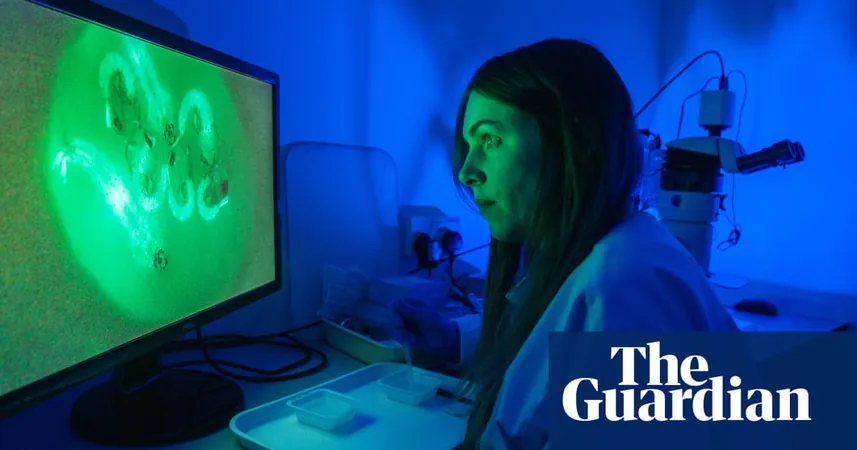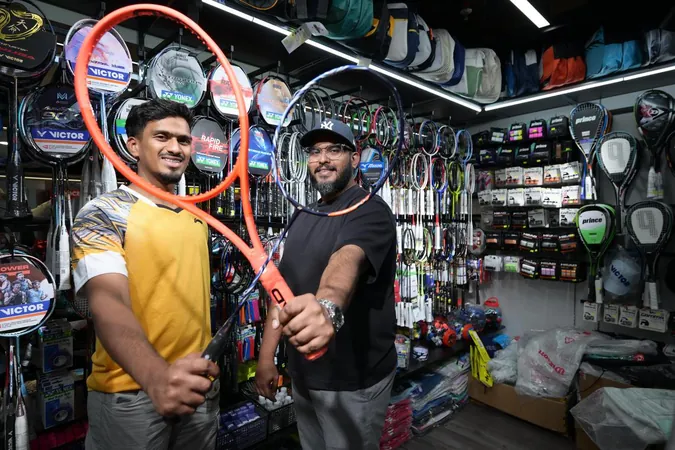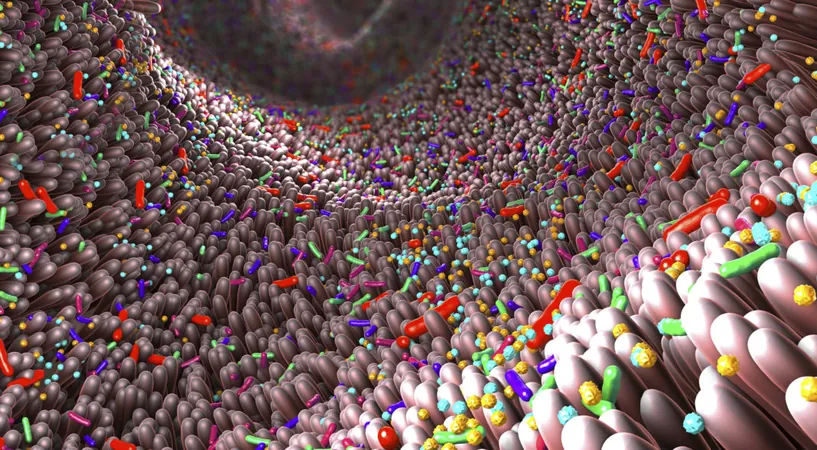
Inside the War on Malaria: How Genetically Modified Mosquitoes Could Change Everything
2025-05-06
Author: Nur
A Hidden Battle Against Malaria
In a nondescript lab nestled within an industrial estate near Oxford, scientist Michal Bilski is engaged in a groundbreaking mission. Armed with electric fly swatters and sticky tape, he peers through a microscope, meticulously injecting genetically modified concoctions into mosquito eggs.
The GM Mosquito Lifespan: From Egg to Impact
"Each slide holds 50 to 100 eggs, and it takes about 15 to 30 minutes to inject them all," Bilski reveals. With the aim of producing mosquitoes that will combat deadly diseases like malaria, dengue fever, Zika, and chikungunya, he injects around 1,000 eggs daily. His work with Oxitec could be pivotal in turning the tide on diseases carried by these insects.
A Game-Changer in East Africa
Last year, Oxitec made headlines by releasing tens of thousands of GM mosquitoes in Djibouti, marking a significant milestone as the first such release in East Africa. This experiment aims to tackle a resurgence of malaria triggered by the invasive Anopheles stephensi mosquito.
The Alarming Rise of Malaria Cases
Malaria is a relentless killer, especially among children under five. In 2023 alone, there were approximately 263 million malaria cases worldwide, resulting in 597,000 deaths across 83 countries, with Africa absorbing the most significant impact.
Urban Threat: The Invasive Mosquito
The invasive Anopheles stephensi mosquito is particularly threatening as it thrives in urban settings—unlike traditional malaria mosquitoes that prefer rural breeding grounds. As African cities expand rapidly, the potential for malaria outbreaks grows exponentially.
The Science Behind the Solution
Once injected, the mosquito eggs are moved to a warm room conducive for development. The lab features trays filled with mosquito larvae and fully developed insects ready to tackle the malaria crisis. Surprisingly, the genetically modified mosquitoes possess a "self-limiting" gene, ensuring any female offspring die before reaching maturity, drastically reducing the population.
Looking Ahead: A Combined Fight
Experts like Lottie Renwick from Malaria No More UK stress the importance of using GM mosquitoes in conjunction with existing tools like insecticide-treated nets and vaccines. While scientists assert the safety of these GM insects, as endorsed by the U.S. FDA and EPA, challenges remain. Oxitec's CEO, Grey Frandsen, insists further research and funding are crucial for success.
A Call for Innovation
Despite the shifting landscape for international funding, particularly after the USAID shutdown, Frandsen remains resilient. "Disruptive tools are needed now more than ever. We are prepared to meet this challenge with innovative solutions to combat malaria effectively. The future of malaria control rests on these breakthroughs."



 Brasil (PT)
Brasil (PT)
 Canada (EN)
Canada (EN)
 Chile (ES)
Chile (ES)
 Česko (CS)
Česko (CS)
 대한민국 (KO)
대한민국 (KO)
 España (ES)
España (ES)
 France (FR)
France (FR)
 Hong Kong (EN)
Hong Kong (EN)
 Italia (IT)
Italia (IT)
 日本 (JA)
日本 (JA)
 Magyarország (HU)
Magyarország (HU)
 Norge (NO)
Norge (NO)
 Polska (PL)
Polska (PL)
 Schweiz (DE)
Schweiz (DE)
 Singapore (EN)
Singapore (EN)
 Sverige (SV)
Sverige (SV)
 Suomi (FI)
Suomi (FI)
 Türkiye (TR)
Türkiye (TR)
 الإمارات العربية المتحدة (AR)
الإمارات العربية المتحدة (AR)